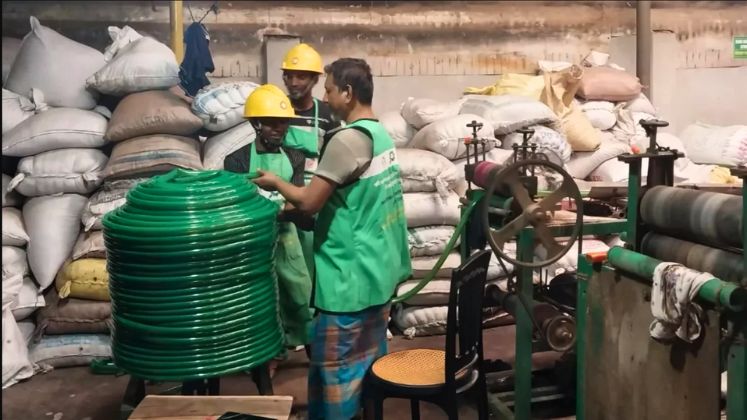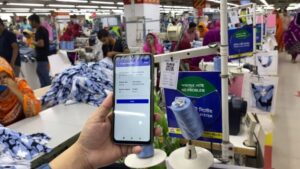
Local textile millers in Bangladesh are urging the Government to permit the import of recycled plastics and provide policy support for utilising plastic flakes and polyester staple fibre (PSF) products. They argue that allowing these imports could serve as a significant import substitute and bolster the economy by generating considerable foreign exchange through exports.
Showkat Aziz Russell, president of the Bangladesh Textile Mills Association (BTMA), recently addressed a letter to the chief adviser, emphasizing the potential economic benefits. The letter suggests that importing recycled plastics and textile waste with a 5 per cent specific duty could lead to an additional US $ 40 to US $ 50 billion in annual export revenue.
In addition, the BTMA has called for the Government to consider the legitimate interests of the local textile industry and facilitate the import of various types of textile waste, including cotton waste, which is essential for mills producing recycled fibre. They also requested a revision of the Ministry of Environment, Forests, and Climate Change’s notification released on August 27, 2024, and proposed a meeting with stakeholders to discuss policy adjustments.
Furthermore, the textile millers have sought an immediate ban on the export of PET bottles and flexible packaging. Currently, Bangladesh imports approximately 1,200 tonnes of PSF annually. By producing PSF domestically using reusable PET bottles, the country could save around US $ 150 million in foreign exchange costs.
The letter also highlighted that Bangladesh has the potential to earn US $ 40 to US $ 50 billion from non-cotton textiles and apparel products by 2030 through the effective utilisation and export of reusable plastics. Notably, multinational companies such as Reebok, Pepsi, Nestle, and Coca-Cola have pledged to incorporate flakes and granules produced from recycled plastics in their packaging.
The global plastics industry, particularly in sectors like ready-made garments and shipbreaking, is witnessing rapid growth. Several mills have received permission from the Ministry of Commerce to import recycled plastics; however, many of these mills are currently facing losses due to a shortage of raw materials, hindering their production targets.
The BTMA asserts that policy amendments are necessary to allow the import of recycled plastics while ensuring the use of state-of-the-art machinery and effluent treatment plants (ETP). Additionally, the letter pointed out that textile waste generated from 100 per cent cotton fabric during garment manufacturing and cutting is biodegradable and poses no environmental harm.
The rising demand for recycled fibre is driven by obligations from ready-made garment buyers, new due diligence requirements from the EU and Western markets, and the pursuit of Sustainable Development Goals (SDGs). The BTMA represents 1,849 members with an investment of nearly US $ 22 billion in the textile sector.






